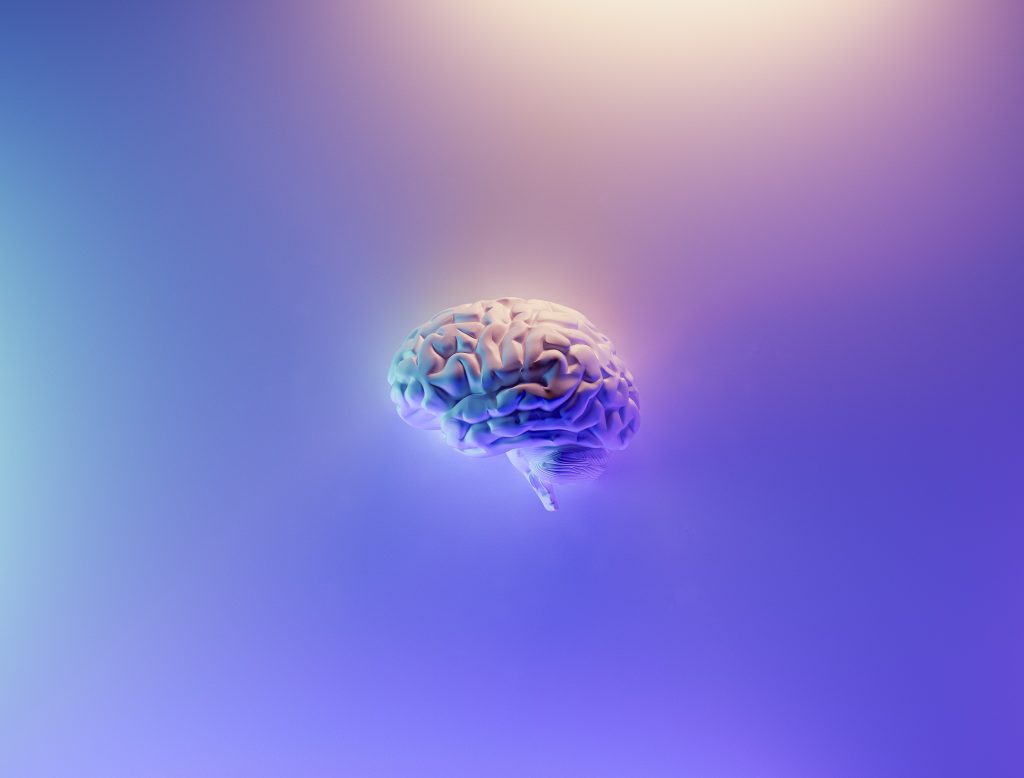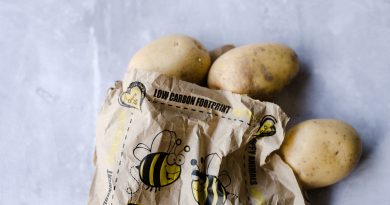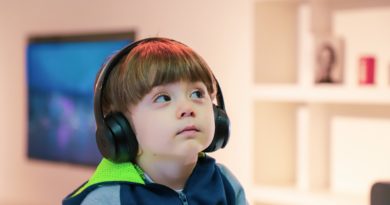Video | You can grow new brain cells
Crédito da Imagem: Fakurian Design on Unsplash
Podemos, como adultos, desenvolver novos neurônios? A neurocientista Sandrine Thuret diz que podemos, e ela oferece pesquisas e conselhos práticos sobre como podemos ajudar nossos cérebros a desempenhar melhor a neurogênese – melhorando o humor, aumentando a formação da memória e prevenindo o declínio associado ao envelhecimento ao longo do caminho.
| Audio | |
|---|---|
Normal | Slow |
| English Transcript | Tradução |
| Can we, as adults, grow new nerve cells? | Podemos, como adultos, desenvolver novas células nervosas? |
| There's still some confusion about that question, as this is a fairly new field of research. | Ainda há alguma confusão sobre essa questão, pois este é um campo de pesquisa relativamente novo. |
| For example, I was talking to one of my colleagues, Robert, who is an oncologist, and he was telling me, "Sandrine, this is puzzling. Some of my patients that have been told they are cured of their cancer still develop symptoms of depression." | Por exemplo, eu estava conversando com um dos meus colegas, Robert, que é oncologista, e ele me disse: "Sandrine, isso é intrigante. Alguns dos meus pacientes que foram informados de que estão curados do câncer ainda desenvolvem sintomas de depressão." |
| And I responded to him, "Well, from my point of view that makes sense. The drug you give to your patients that stops the cancer cells multiplying also stops the newborn neurons being generated in their brain." | E eu respondi a ele: "Bem, do meu ponto de vista, isso faz sentido. A droga que você dá aos seus pacientes, que impede a multiplicação das células cancerosas, também impede que os neurônios recém-nascidos sejam gerados em seus cérebros." |
| And then Robert looked at me like I was crazy and said, "But Sandrine, these are adult patients -- adults do not grow new nerve cells." | E então Robert olhou para mim como se eu estivesse louca e disse: "Mas Sandrine, esses são pacientes adultos - adultos não desenvolvem novas células nervosas." |
| And much to his surprise, I said, "Well actually, we do." | E para sua surpresa, eu disse: "Bem, na verdade, desenvolvem." |
| And this is a phenomenon that we call neurogenesis. | E esse é um fenômeno que chamamos de neurogênese. |
| Now Robert is not a neuroscientist, and when he went to medical school he was not taught what we know now -- that the adult brain can generate new nerve cells. | Bem, Robert não é neurocientista e, quando foi para a faculdade de medicina, não aprendeu o que sabemos agora - que o cérebro adulto pode gerar novas células nervosas. |
| So Robert, you know, being the good doctor that he is, wanted to come to my lab to understand the topic a little bit better. | Então, Robert, você sabe, sendo o bom médico que é, queria vir ao meu laboratório para entender o assunto um pouco melhor. |
| And I took him for a tour of one of the most exciting parts of the brain when it comes to neurogenesis -- and this is the hippocampus. | E eu o levei para um passeio por uma das partes mais emocionantes do cérebro quando se trata de neurogênese - e este é o hipocampo. |
| So this is this gray structure in the center of the brain. | Essa é a estrutura cinza no centro do cérebro. |
| And what we've known already for very long, is that this is important for learning, memory, mood and emotion. | E o que já sabemos há muito tempo, é que isso é importante para o aprendizado, a memória, o humor e a emoção. |
| However, what we have learned more recently is that this is one of the unique structures of the adult brain where new neurons can be generated. | No entanto, o que aprendemos mais recentemente é que esta é uma das estruturas únicas do cérebro adulto onde novos neurônios podem ser gerados. |
| And if we slice through the hippocampus and zoom in, what you actually see here in blue is a newborn neuron in an adult mouse brain. | E se cortarmos o hipocampo e ampliarmos, o que você realmente vê aqui em azul é um neurônio recém-nascido no cérebro de um rato adulto. |
| So when it comes to the human brain -- my colleague Jonas Frisén from the Karolinska Institutet, has estimated that we produce 700 new neurons per day in the hippocampus. | Então, quando se trata do cérebro humano - meu colega Jonas Frisén do Karolinska Institutet, estimou que produzimos 700 novos neurônios por dia no hipocampo. |
| You might think this is not much, compared to the billions of neurons we have. | Você pode pensar que isso não é muito, em comparação com os bilhões de neurônios que temos. |
| But by the time we turn 50, we will have all exchanged the neurons we were born with in that structure with adult-born neurons. | Mas, quando fizermos 50 anos, todos teremos trocado os neurônios com os quais nascemos naquela estrutura por neurônios nascidos em adultos. |
| So why are these new neurons important and what are their functions? | Então, por que esses novos neurônios são importantes e quais são suas funções? |
| First, we know that they're important for learning and memory. | Primeiro, sabemos que eles são importantes para o aprendizado e a memória. |
| And in the lab we have shown that if we block the ability of the adult brain to produce new neurons in the hippocampus, then we block certain memory abilities. | E no laboratório, mostramos que, se bloquearmos a capacidade do cérebro adulto de produzir novos neurônios no hipocampo, bloquearemos certas habilidades de memória. |
| And this is especially new and true for spatial recognition -- so like, how you navigate your way in the city. | E isso é especialmente novo e verdadeiro para o reconhecimento espacial - por exemplo, como você navega na cidade. |
| We are still learning a lot, and neurons are not only important for memory capacity, but also for the quality of the memory. | Ainda estamos aprendendo muito, e os neurônios não são importantes apenas para a capacidade de memória, mas também para a qualidade da memória. |
| And they will have been helpful to add time to our memory and they will help differentiate very similar memories, like: how do you find your bike that you park at the station every day in the same area, but in a slightly different position? | E terão sido úteis para aumentar o tempo de vida de nossas memórias e ajudarão a diferenciar memórias muito semelhantes, como: como você encontra a bicicleta que estaciona na estação todos os dias no mesmo local, mas em uma posição um pouco diferente? |
| And more interesting to my colleague Robert is the research we have been doing on neurogenesis and depression. | E o mais interessante para meu colega Robert é a pesquisa que temos feito sobre neurogênese e depressão. |
| So in an animal model of depression, we have seen that we have a lower level of neurogenesis. | Portanto, em um modelo animal de depressão, vimos que temos um nível mais baixo de neurogênese. |
| And if we give antidepressants, then we increase the production of these newborn neurons, and we decrease the symptoms of depression, establishing a clear link between neurogenesis and depression. | E se dermos antidepressivos, aumentamos a produção desses neurônios recém-nascidos e diminuímos os sintomas da depressão, estabelecendo uma ligação clara entre a neurogênese e a depressão. |
| But moreover, if you just block neurogenesis, then you block the efficacy of the antidepressant. | Além disso, se você apenas bloquear a neurogênese, bloqueará a eficácia do antidepressivo. |
| So by then, Robert had understood that very likely his patients were suffering from depression even after being cured of their cancer, because the cancer drug had stopped newborn neurons from being generated. | Então, Robert tinha entendido que muito provavelmente seus pacientes estavam sofrendo de depressão, mesmo depois de serem curados do câncer, porque a droga contra o câncer havia impedido a geração de novos neurônios. |
| And it will take time to generate new neurons that reach normal functions. | E levará tempo para gerar novos neurônios que atinjam as funções normais. |
| So, collectively, now we think we have enough evidence to say that neurogenesis is a target of choice if we want to improve memory formation or mood, or even prevent the decline associated with aging, or associated with stress. | Então, coletivamente, agora achamos que temos evidências suficientes para dizer que a neurogênese é o ponto a ser mirado se quisermos melhorar a formação da memória ou do humor, ou mesmo prevenir o declínio associado ao envelhecimento, ou associado ao estresse. |
| So the next question is: can we control neurogenesis? | Portanto, a próxima pergunta é: podemos controlar a neurogênese? |
| The answer is yes. | A resposta é sim. |
| And we are now going to do a little quiz. | E agora vamos fazer um pequeno teste. |
| I'm going to give you a set of behaviors and activities, and you tell me if you think they will increase neurogenesis or if they will decrease neurogenesis. | Vou dar a você um conjunto de comportamentos e atividades, e você me diz se acha que eles vão aumentar a neurogênese ou se vão diminuir a neurogênese. |
| Are we ready? | Estão prontos? |
| OK, let's go. | OK, vamos lá. |
| So what about learning? | Então, que tal aprender? |
| Increasing? | Aumenta? |
| Yes. | Sim. |
| Learning will increase the production of these new neurons. | O aprendizado aumentará a produção desses novos neurônios. |
| How about stress? | Que tal estresse? |
| Yes, stress will decrease the production of new neurons in the hippocampus. | Sim, o estresse diminuirá a produção de novos neurônios no hipocampo. |
| How about sleep deprivation? | Que tal privação de sono? |
| Indeed, it will decrease neurogenesis. | Na verdade, diminuirá a neurogênese. |
| How about sex? | Que tal sexo? |
| Oh, wow! | Oh, uau! |
| Yes, you are right, it will increase the production of new neurons. | Sim, tem razão, vai aumentar a produção de novos neurônios. |
| However, it's all about balance here. | No entanto, é tudo uma questão de equilíbrio aqui. |
| We don't want to fall in a situation -- about too much sex leading to sleep deprivation. | Não queremos cair em uma situação - sobre muito sexo levando à privação de sono. |
| How about getting older? | Que tal envelhecer? |
| So the neurogenesis rate will decrease as we get older, but it is still occurring. | Portanto, a taxa de neurogênese diminuirá à medida que envelhecemos, mas ainda ocorre. |
| And then finally, how about running? | E finalmente, que tal correr? |
| I will let you judge that one by yourself. | Vou deixar você julgar por si mesmo. |
| So this is one of the first studies that was carried out by one of my mentors, Rusty Gage from the Salk Institute, showing that the environment can have an impact on the production of new neurons. | Portanto, este é um dos primeiros estudos realizados por um dos meus mentores, Rusty Gage, do Salk Institute, mostrando que o ambiente pode ter um impacto na produção de novos neurônios. |
| And here you see a section of the hippocampus of a mouse that had no running wheel in its cage. | E aqui você vê uma seção do hipocampo de um camundongo que não tinha roda de corrida em sua gaiola. |
| And the little black dots you see are actually newborn neurons-to-be. | E os pequenos pontos pretos que você vê são, na verdade, futuros neurônios recém-nascidos. |
| And now, you see a section of the hippocampus of a mouse that had a running wheel in its cage. | E agora, você vê uma seção do hipocampo de um rato que tinha uma roda em sua gaiola. |
| So you see the massive increase of the black dots representing the new neurons-to-be. | Então você vê o aumento massivo dos pontos pretos que representam os novos neurônios. |
| So activity impacts neurogenesis, but that's not all. | Portanto, a atividade afeta a neurogênese, mas isso não é tudo. |
| What you eat will have an effect on the production of new neurons in the hippocampus. | O que você come terá um efeito na produção de novos neurônios no hipocampo. |
| So here we have a sample of diet -- of nutrients that have been shown to have efficacy. | Portanto, aqui temos uma amostra da dieta - de nutrientes que demonstraram ter eficácia. |
| And I'm just going to point a few out to you: Calorie restriction of 20 to 30 percent will increase neurogenesis. | E vou apenas apontar alguns para você: a restrição calórica de 20 a 30 por cento aumentará a neurogênese. |
| Intermittent fasting -- spacing the time between your meals -- will increase neurogenesis. | O jejum intermitente - espaçar o tempo entre as refeições - aumentará a neurogênese. |
| Intake of flavonoids, which are contained in dark chocolate or blueberries, will increase neurogenesis. | A ingestão de flavonóides, que estão contidos no chocolate amargo ou nos mirtilos, aumentará a neurogênese. |
| Omega-3 fatty acids, present in fatty fish, like salmon, will increase the production of these new neurons. | Os ácidos graxos ômega-3, presentes em peixes gordurosos, como o salmão, aumentarão a produção desses novos neurônios. |
| Conversely, a diet rich in high saturated fat will have a negative impact on neurogenesis. | Por outro lado, uma dieta rica em gordura saturada terá um impacto negativo na neurogênese. |
| Ethanol -- intake of alcohol -- will decrease neurogenesis. | Etanol - ingestão de álcool - diminuirá a neurogênese. |
| However, not everything is lost; resveratrol, which is contained in red wine, has been shown to promote the survival of these new neurons. | No entanto, nem tudo está perdido; o resveratrol, que está contido no vinho tinto, tem demonstrado promover a sobrevivência desses novos neurônios. |
| So next time you are at a dinner party, you might want to reach for this possibly "neurogenesis-neutral" drink. | Então, da próxima vez que você estiver em um jantar, você pode querer tomar uma bebida possivelmente "neutra para a neurogênese". |
| And then finally, let me point out the last one -- a quirky one. | E, finalmente, deixe-me apontar o último - um peculiar. |
| So Japanese groups are fascinated with food textures, and they have shown that actually soft diet impairs neurogenesis, as opposed to food that requires mastication -- chewing -- or crunchy food. | Assim, os grupos japoneses estão fascinados com as texturas dos alimentos e mostraram que, na verdade, uma dieta leve prejudica a neurogênese, ao contrário de alimentos que exigem mastigação - mastigação - ou alimentos crocantes. |
| So all of this data, where we need to look at the cellular level, has been generated using animal models. | Então, todos esses dados, onde precisamos olhar ao nível celular, foram gerados usando modelos animais. |
| But this diet has also been given to human participants, and what we could see is that the diet modulates memory and mood in the same direction as it modulates neurogenesis, such as: calorie restriction will improve memory capacity, whereas a high-fat diet will exacerbate symptoms of depression -- as opposed to omega-3 fatty acids, which increase neurogenesis, and also help to decrease the symptoms of depression. | Mas essa dieta também foi dada a participantes humanos, e o que pudemos ver é que a dieta modula a memória e o humor na mesma direção que modula a neurogênese, como: a restrição calórica melhorará a capacidade de memória, enquanto uma dieta rica em gordura irá exacerbar os sintomas da depressão - ao contrário dos ácidos graxos ômega-3, que aumentam a neurogênese e também ajudam a diminuir os sintomas da depressão. |
| So we think that the effect of diet on mental health, on memory and mood, is actually mediated by the production of the new neurons in the hippocampus. | Assim, pensamos que o efeito da dieta na saúde mental, na memória e no humor, é na verdade mediado pela produção de novos neurônios no hipocampo. |
| And it's not only what you eat, but it's also the texture of the food, when you eat it and how much of it you eat. | E não é só o que você come, mas também a textura da comida, quando você come e quanto dela você come. |
| On our side -- neuroscientists interested in neurogenesis -- we need to understand better the function of these new neurons, and how we can control their survival and their production. | Do nosso lado - neurocientistas interessados na neurogênese - precisamos entender melhor a função desses novos neurônios e como podemos controlar sua sobrevivência e sua produção. |
| We also need to find a way to protect the neurogenesis of Robert's patients. | Também precisamos encontrar uma maneira de proteger a neurogênese dos pacientes de Robert. |
| And on your side -- I leave you in charge of your neurogenesis. | E quanto a você - eu te deixo no comando de sua neurogênese. |
| Thank you. | Obrigada. |
| Margaret Heffernan: Fantastic research, Sandrine. Now, I told you you changed my life -- I now eat a lot of blueberries. | Margaret Heffernan: Pesquisa fantástica, Sandrine. Bem, eu disse que você mudou minha vida - agora como muitos mirtilos. |
| Sandrine Thuret: Very good. | Sandrine Thuret: Muito bom. |
| Margaret Heffernan: I'm really interested in the running thing. Do I have to run? Or is it really just about aerobic exercise, getting oxygen to the brain? Could it be any kind of vigorous exercise? | Margaret Heffernan: Estou muito interessada em correr. Eu tenho que correr? Ou trata-se apenas de exercícios aeróbicos, levando oxigênio para o cérebro? Poderia ser algum tipo de exercício vigoroso? |
| Sandrine Turet: So for the moment, we can't really say if it's just the running itself, but we think that anything that indeed will increase the production -- or moving the blood flow to the brain, should be beneficial. | Sandrine Turet: Então, por enquanto, não podemos realmente dizer se é apenas o funcionamento em si, mas achamos que qualquer coisa que realmente aumente a produção - ou mova o fluxo sanguíneo para o cérebro, deve ser benéfico. |
| Margaret Heffernan: So I don't have to get a running wheel in my office? | Margaret Heffernan: Então eu não preciso colocar uma roda de corrida no meu escritório? |
| Sandrine Turet: No, you don't! | Sandrine Turet: Não, não precisa! |
| Margaret Heffernan: Oh, what a relief! That's wonderful. | Margaret Heffernan: Oh, que alívio! Isso é maravilhoso. |
| Sandrine Thuret, thank you so much. | Sandrine Thuret, muito obrigada. |
| Sandrine Turet: Thank you, Margaret. | Sandrine Turet: Obrigada, Margaret. |
Contagem de palavras
A tabela abaixo exibe as palavras encontradas neste vídeo bem como o número de vezes em que aparecem.
Veja também: Para que serve esta tabela?
| Freq. | Palavra | Freq. | Palavra | Freq. | Palavra |
|---|---|---|---|---|---|
| 78 | the | 54 | of | 46 | and |
| 42 | to | 39 | we | 32 | you |
| 30 | that | 30 | a | 28 | in |
| 26 | is | 25 | neurogenesis | 23 | neurons |
| 22 | will | 22 | so | 20 | new |
| 19 | have | 14 | this | 13 | are |
| 11 | it | 11 | increase | 11 | I |
| 10 | what | 10 | production | 10 | memory |
| 10 | for | 10 | but | 10 | brain |
| 10 | about | 9 | my | 9 | how |
| 9 | hippocampus | 8 | sandrine | 8 | or |
| 8 | one | 8 | on | 8 | not |
| 8 | if | 8 | depression | 7 | these |
| 7 | then | 7 | now | 7 | diet |
| 7 | decrease | 7 | been | 7 | as |
| 6 | your | 6 | they | 6 | their |
| 6 | see | 6 | running | 6 | robert |
| 6 | can | 6 | also | 6 | adult |
| 5 | with | 5 | was | 5 | time |
| 5 | think | 5 | patients | 5 | newborn |
| 5 | much | 5 | margaret | 5 | learning |
| 5 | from | 5 | eat | 5 | do |
| 5 | by | 5 | be | 5 | an |
| 5 | actually | 4 | yes | 4 | when |
| 4 | very | 4 | symptoms | 4 | still |
| 4 | shown | 4 | mood | 4 | me |
| 4 | like | 4 | just | 4 | it's |
| 4 | important | 4 | here | 4 | heffernan |
| 4 | he | 4 | has | 4 | had |
| 4 | generated | 4 | food | 4 | cells |
| 4 | cancer | 4 | block | 4 | being |
| 4 | at | 4 | all | 3 | which |
| 3 | wheel | 3 | want | 3 | turet |
| 3 | thank | 3 | stress | 3 | research |
| 3 | really | 3 | point | 3 | out |
| 3 | nerve | 3 | need | 3 | mouse |
| 3 | little | 3 | know | 3 | I'm |
| 3 | however | 3 | going | 3 | give |
| 3 | fatty | 3 | don't | 2 | where |
| 2 | were | 2 | well | 2 | way |
| 2 | understand | 2 | told | 2 | thuret |
| 2 | that's | 2 | survival | 2 | structure |
| 2 | stops | 2 | some | 2 | sleep |
| 2 | side | 2 | sex | 2 | section |
| 2 | say | 2 | same | 2 | said |
| 2 | restriction | 2 | reach | 2 | question |
| 2 | produce | 2 | our | 2 | opposed |
| 2 | only | 2 | omega | 2 | older |
| 2 | oh | 2 | no | 2 | next |
| 2 | more | 2 | modulates | 2 | might |
| 2 | lot | 2 | level | 2 | let |
| 2 | lab | 2 | its | 2 | interested |
| 2 | intake | 2 | indeed | 2 | improve |
| 2 | impact | 2 | human | 2 | his |
| 2 | him | 2 | high | 2 | help |
| 2 | grow | 2 | good | 2 | getting |
| 2 | get | 2 | generate | 2 | functions |
| 2 | first | 2 | find | 2 | finally |
| 2 | fat | 2 | exercise | 2 | even |
| 2 | efficacy | 2 | effect | 2 | drug |
| 2 | dots | 2 | deprivation | 2 | day |
| 2 | cured | 2 | could | 2 | control |
| 2 | contained | 2 | comes | 2 | colleague |
| 2 | capacity | 2 | calorie | 2 | cage |
| 2 | born | 2 | blueberries | 2 | black |
| 2 | between | 2 | better | 2 | associated |
| 2 | animal | 2 | adults | 2 | acids |
| 1 | zoom | 1 | yourself | 1 | wow |
| 1 | wonderful | 1 | wine | 1 | why |
| 1 | who | 1 | whereas | 1 | we've |
| 1 | went | 1 | wanted | 1 | vigorous |
| 1 | view | 1 | using | 1 | unique |
| 1 | understood | 1 | turn | 1 | true |
| 1 | tour | 1 | topic | 1 | took |
| 1 | too | 1 | through | 1 | thing |
| 1 | they're | 1 | there's | 1 | textures |
| 1 | texture | 1 | telling | 1 | tell |
| 1 | taught | 1 | target | 1 | talking |
| 1 | take | 1 | surprise | 1 | suffering |
| 1 | such | 1 | studies | 1 | structures |
| 1 | stopped | 1 | station | 1 | spatial |
| 1 | spacing | 1 | soft | 1 | slightly |
| 1 | slice | 1 | situation | 1 | similar |
| 1 | showing | 1 | should | 1 | set |
| 1 | sense | 1 | seen | 1 | school |
| 1 | saturated | 1 | sample | 1 | salmon |
| 1 | salk | 1 | rusty | 1 | run |
| 1 | robert's | 1 | right | 1 | rich |
| 1 | resveratrol | 1 | responded | 1 | requires |
| 1 | representing | 1 | relief | 1 | red |
| 1 | recognition | 1 | recently | 1 | ready |
| 1 | rate | 1 | quiz | 1 | quirky |
| 1 | quality | 1 | puzzling | 1 | protect |
| 1 | promote | 1 | prevent | 1 | present |
| 1 | possibly | 1 | position | 1 | phenomenon |
| 1 | percent | 1 | per | 1 | party |
| 1 | parts | 1 | participants | 1 | park |
| 1 | oxygen | 1 | oncologist | 1 | ok |
| 1 | office | 1 | occurring | 1 | nutrients |
| 1 | normal | 1 | neutral | 1 | neuroscientists |
| 1 | neuroscientist | 1 | neuron | 1 | negative |
| 1 | navigate | 1 | multiplying | 1 | moving |
| 1 | most | 1 | moreover | 1 | moment |
| 1 | models | 1 | model | 1 | mentors |
| 1 | mental | 1 | memories | 1 | medical |
| 1 | mediated | 1 | meals | 1 | mastication |
| 1 | massive | 1 | makes | 1 | lower |
| 1 | lost | 1 | looked | 1 | look |
| 1 | long | 1 | link | 1 | likely |
| 1 | life | 1 | let's | 1 | leave |
| 1 | learned | 1 | leading | 1 | last |
| 1 | known | 1 | kind | 1 | karolinska |
| 1 | judge | 1 | jonas | 1 | japanese |
| 1 | itself | 1 | intermittent | 1 | interesting |
| 1 | institutet | 1 | institute | 1 | increasing |
| 1 | impairs | 1 | impacts | 1 | helpful |
| 1 | health | 1 | groups | 1 | gray |
| 1 | go | 1 | given | 1 | gage |
| 1 | function |









